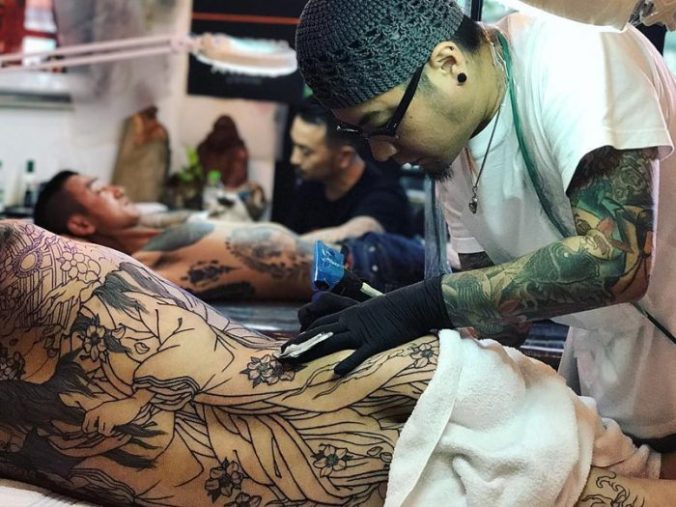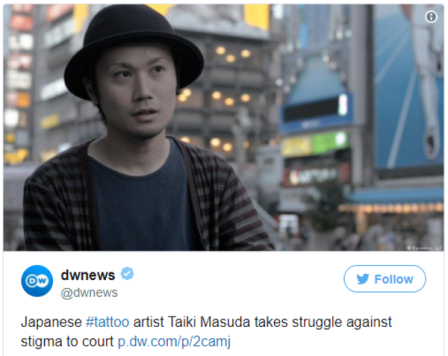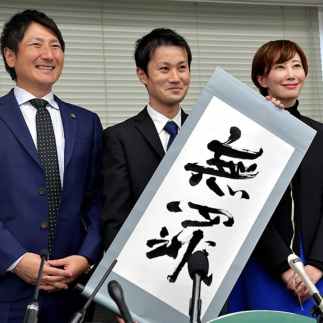Tattooist Acquitted for Operating without Medical License by Japanese High Court

The art of tattooing in Japan has been blanketed in restrictions and stigmatizations for decades. This goes back to its association with the yakuza’s emergence in the early 20th century, when elaborate tattoos was a sign of membership to one of the organized crime groups. From this, a stigma has been attached to an art form which once held a prominent place in Japan’s history.
However, despite the low-key (and sometimes not so low-key) discriminations, the number of Japanese people who’ve been opting to get inked has been increasing over the years. So, in 2001, in an attempt to curb their enthusiasm and regulate the industry, the Ministry of Health, Labor and Welfare looked to Article 17 of the Medical Practitioners’ Act (1948) which states that “No person except a medical practitioner shall engage in medical practice.”
This Act, however, does not clearly state what constitutes a “medical practice,” so the ministry sought to rectify this by issuing a notice which stated, “針先に色素を付けながら、皮膚の表面に墨等の色素を入れる行為” [lit. putting pigment on a needle tip and inserting ink into the skin] constitutes a medical practice that can only be carried out by those with a medical practitioner’s license.
Still, it wasn’t until 14 years later that the authorities got involved.
In 2015, the Osaka Prefectural Police started cracking down on the tattoo industry, and two tattoo artists were arrested for violating the Medical Practitioners’ Act. Before then, the notice was primarily used by health authorities to regulate cosmetic makeup tattoo practitioners. (1)
It was during the 2015 crackdown that the studio of tattoo artist Taiki Masuda (who founded the campaign group Save Tattooing in Japan that same year) was raided by Osaka police. His tattoo equipment was confiscated and he was arrested for having tattooed three customers at the time. Masuda was subsequently fined 300,000 yen for breaching the Medical Practitioners’ Act.
However, unlike other tattoo artists who were fined, Masuda refused to pay – and instead chose to take his case to the Osaka District Court for trial because he believed to accept the fine was to accept that tattoo artists in Japan are criminals.

Masuda’s trial, which was held between April and August 2017, garnered a lot of attention because of the major implications it could’ve had on the tattooing industry. He even had support from experts in Japanese criminal law, including respected university professors who testified in his defense. Still, the outcome was not in his favor, and on September 27, he was once again found guilty of violating the Medical Practitioners’ Act and ordered to pay a fine 150,000 yen. According to the district court, tattooists need medical knowledge and expertise because “the treatment could possibly cause a skin lesion or allergy.” (2)
Once again, Masuda was opposed to giving up and chose to appeal the court’s ruling.
Then, on November 14, his determination paid off when the Osaka High Court overturned the district court’s decision and acquitted Masuda for operating without a medical license, ruling the process of tattooing is not a medical practice.
“The tattooing procedure is not relevant to medicine and it does not constitute a medical act controlled under the medical practitioners’ law,” said Presiding Judge Masaki Nishida during the ruling.

Masuda and lawyers after court win.
This unprecedented win for Masuda will likely be far-reaching in its implications on the Japanese tattooing industry. And although this does not mean that societal perceptions will improve overnight, it does mean that the art form will not die a slow death in a country where it was once revered. Tattoo artists now have the hope of being able to practice their craft without fear and subjugation.
With the 2020 Olympics coming up, Japanese attitudes toward tattoos are definitely going to be challenged when the country is faced with an influx of foreigners and athletes who will undoubtedly be sporting an array of ink. Will Japan still insist on turning away tattooed individuals from public baths, beaches, and water parks – or will a more pragmatic viewpoint arise?
Sources:
Originally published here.